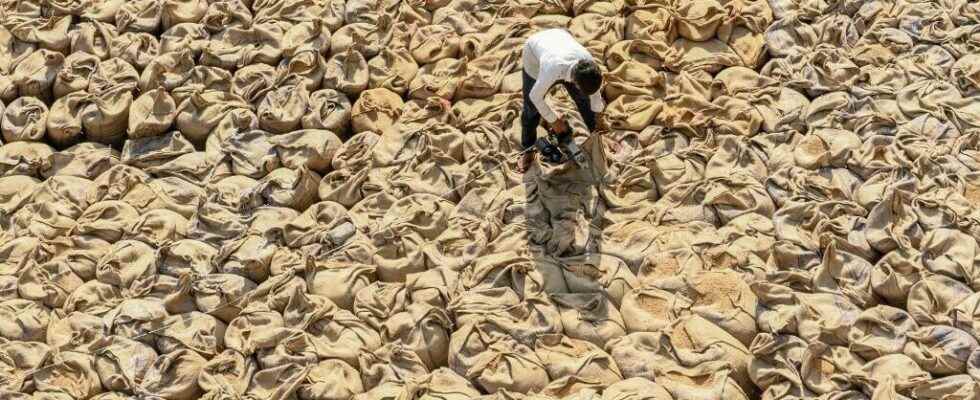Russia and Ukraine are among the largest wheat exporters in the world and the war between the two countries has therefore caused this trade to fall. And this is starting to cause serious food shortages in countries that depend on it, which are mostly in Africa and the Middle East. A country would have the capacities to come to their rescue: it is India. And New Delhi has already started selling it to countries that are suffering from shortages.
With our correspondent in New Delhi,
India is a gigantic country with huge quantities to sell. The country is indeed the second largest wheat producer in the world, after China, but almost everything is used to feed its population of 1.3 billion. Moreover, the government guarantees a minimum purchase price for this grain, which is generally above world market prices, so farmers prefer to sell it to the government rather than abroad. As a result, India produces 14% of the world’s wheat, but only accounts for 1% of exports. And since not everything is eaten, some end up rotting in the silos.
But this is rapidly changing due to the Ukrainian conflict, as Russia and Ukraine are responsible for a quarter of the world’s wheat exports, and much of it goes through the Black Sea which is in the midst of the current war. These exchanges are therefore at a standstill, and this has caused wheat prices to rise by 40% since the end of February. At this price, Indian wheat is competitive. And luckily, India has just had a record harvest of over 111 million tons.
Global wheat resale
So the government is stepping up its efforts to sell its wheat, and it’s starting to pay off. L’Egypt, the world’s largest importer of this cereal, has just approved India as a major supplier of wheat. The African country is said to need a million tonnes of Indian wheat, including 240,000 in April alone.
New Delhi is also discussing with the Nigeria, Iran or Indonesia, which have depended on Ukrainian wheat until now. Analysts estimate that India could thus compensate for up to 75% of the drop in exports caused by the war and the Indian government is already presenting itself as the savior of the countries of the south, by sparing them a probable famine.
A wheat diplomacy whose fallout could also benefit Indian farmers and the country’s trade balance, of course.
►To read: War in Ukraine: Africa organizes itself in the face of the risk of a food crisis
Obstacles may arise over time
Some Indian wheat is not exported because of its low quality: it grows using too many pesticides, or does not contain enough protein, for example. These sanitary defects can be forgotten for some time, but are not to be neglected.
Moreover, the American congressmen went up against India because of the important subsidies provided to the producers of wheat. And they had asked the government to file a complaint with the World Trade Organization for this. India’s prime minister just asked Joe Biden not to, when he spoke to him earlier this week.
A truce can be sealed in these times of Ukrainian war, but we must not forget that international trade is another form of battle, and that the United States is also seeking to sell its wheat to former customers of Ukraine and Russia.
►Listen: War in Ukraine: risks of global food shortages
